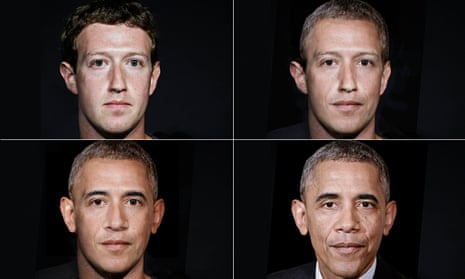The outside world might regard Silicon Valley as a bastion of ruthless capitalism but tech entrepreneurs fashion themselves as believers in solidarity, autonomy and collaboration.
These venture humanitarians believe that they – and not the wily politicians or the vain NGOs – are the true champions of the weak and the poor, making the maligned markets deliver material benefits to those on the fringes of society. Some of the valley’s in-house intellectuals even cheer the onset of “digital socialism,” which – to quote digital thinker and environmentalist Kevin Kelly’s 2009 cover story in Wired – “can be viewed as a third way that renders irrelevant the old debates.”
Leaving aside the battles over the true meaning of “sharing” in buzzwords like “the sharing economy”, one can discern an intriguing argument in all this self-congratulatory rhetoric. The magnanimous Silicon Valley really wants to be the perfect antidote to the greedy Wall Street: if the latter yields an ever greater increase in income inequality, the former helps to bridge the gap in consumption inequality.
That is, you might be earning less and less than your rich neighbour, but both of you also pay less and less – it’s probably nothing – for listening to music on Spotify, doing research on Google, or watching funny videos on YouTube. Soon, this logic might apply to internet access itself: Internet.org, Facebook’s flagship initiative in the developing world, offers users nominally free access to basic online services including Facebook or Wikipedia. Once education, health and other services move to the cloud, one can see Silicon Valley playing an even greater role in these matters. Couldn’t Google notify you of any developing symptoms, once you share your everyday health data? Wouldn’t that offer some basic healthcare to people who would otherwise not be able to afford it? And, in the absence of other options, who could possibly object to Google saving lives?
Silicon Valley’s oft-repeated tales of “user empowerment” are made of these kinds of promises. Set against the background of the failing welfare state, unable to cope with the promises it made to its own people, Silicon Valley offers us a new social net: we might be forced to sell our cars and default on our mortgages, but we would never lose access to Spotify and Google. Death of starvation is still a possibility but death of content starvation is no longer in the cards.
But before those cars and homes disappear, Silicon Valley could also help us turn them into a productive asset. Thanks to startups like JustPark – a trendy app which allows property owners to rent their underused parking space to desperate drivers – even the income inequality gap can be bridged, if only by a little bit. Ordinary citizens should rejoice: not only would they pay nothing for basic services – they could supplement their stagnant regular income by monetising their previously “dead” capital.
This claim to being the world’s great equaliser is the very factor that makes Silicon Valley into a non-stick industry impermeable to social criticism. But the premises of its venture humanitarianism are not as rigorous and unshakable as they seem. There are at least three possible lines of attack.
First, a nominal increase in equality of consumption does not always entail a corresponding increase in individual autonomy – in fact, it might have the opposite effect. To take advantage of all the opportunities offered to us by Silicon Valley – including such fancy-sounding projects as Internet.org – one must first agree to share one’s data in exchange for free services. One has to be very naive to believe that this data is not going to shape how we live the rest of our lives, especially when insurance companies and banks are so eager to incorporate it in their decision-making.

The end result will be more social complacency as we start adjusting our behaviour, expecting that everything we do will affect everything else. It also means that those who can actually afford to pay for all those services that the rest of us are getting for free will enjoy an even greater autonomy in the future: think of the people who don’t already have to worry about qualifying for a mortgage or a loan. They are not the ones who would worry how Uber drivers rank them or whether skipping the gym might give them trouble with their insurer.
Second, Silicon Valley’s empowerment fairy tale is just that: a fairy tale. It conceals the fact that the nominally free information available on Google is not equally useful to an unemployed graduate and a secretive hedge fund with access to sophisticated technology to turn data into trading insights. The same goes for attention-channelling services like Twitter: they are not equally useful to an average person with 100 followers and a prominent venture capitalist followed by a million people.
Therefore, it seems obvious that equalising access to communication services does not in itself eliminate or even weaken other types of inequality. But should we even worry about those other types, if equality of consumption is all that matters? We certainly must. Silicon Valley, after all, has done little to equalise things like home ownership and there is no prospect of it ever disrupting the world of real estate.
In other words, to make other types of inequality less relevant, Silicon Valley would need to also become the go-to provider of free housing and food: only then one could plausibly argue that your hedge-fund neighbour’s outsize pay is beside the point, since all your own basic needs are covered anyway.
This, however, raises the third and most troubling question: why bother to have a state at all, if Silicon Valley can magically provide basic services, from education to health, on its own? Even more important, why still pay taxes and fund non-existent public services, which are to be provided – on a very different model – by tech companies anyway? This is a question that neither the state nor Silicon Valley is prepared to answer. One feels, however, that the modern state wouldn’t mind having the tech companies play a greater role, allowing it to concentrate on the one task it likes most: fighting terror.
The citizens, who are not yet fully aware of these dilemmas, might eventually realise that the actual choice we are facing today is not between the market and the state, but between politics and non-politics. It’s a choice between a system bereft of any institutional and political imagination – where some permutation of hackers, entrepreneurs and venture capitalists is the default answer to every social problem – and a system, where explicitly political solutions that might question who – citizens, firms, the state – ought to own what, and on what terms, are still part of the conversation. However one chooses to call the world that Silicon Valley is helping to usher in, “digital socialism” it clearly isn’t.
